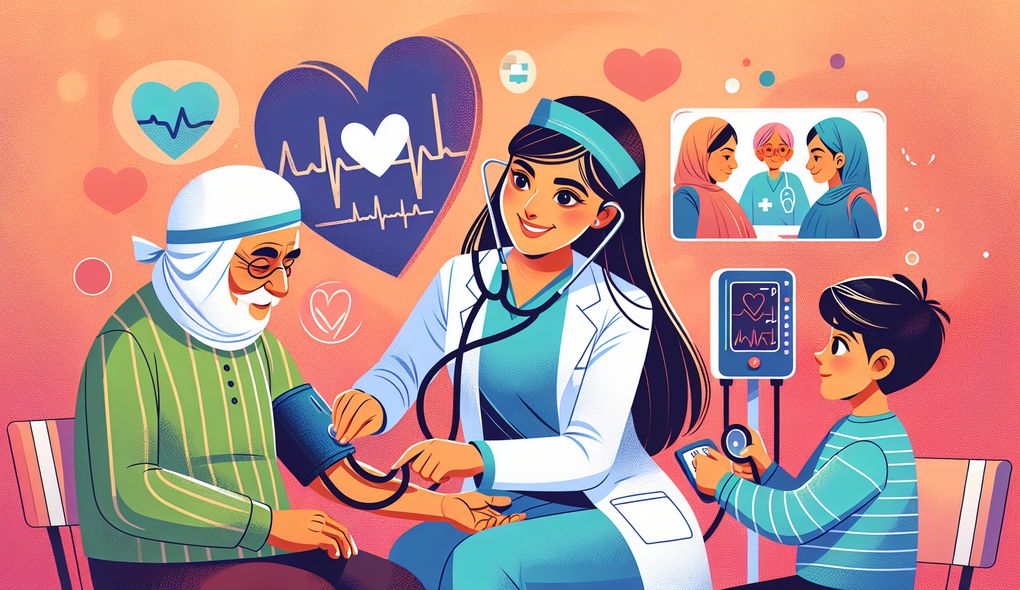Tell us about a time when you had to manage multiple patients and prioritize tasks effectively.
SENIOR LEVEL

Sample answer to the question:
In my previous role as a Family Nurse Practitioner, I had to manage multiple patients and prioritize tasks effectively on a daily basis. One specific example is when I worked in a busy primary care clinic where I was responsible for overseeing the care of 20 patients per day. I would start my day by reviewing the patients' medical histories and identifying their chief complaints. Then, based on the urgency of their needs, I would prioritize my tasks accordingly. I would see patients who needed immediate attention first, such as those with acute injuries or severe symptoms. Throughout the day, I would manage their conditions, provide them with appropriate treatments, and document their progress in the electronic health records system. Additionally, I would also coordinate with other healthcare professionals, such as specialists or pharmacists, for further patient care. By effectively managing multiple patients and prioritizing tasks, I was able to provide comprehensive care and ensure that each patient's needs were addressed in a timely manner.
Here is a more solid answer:
During my time as a Family Nurse Practitioner, I faced multiple instances where I had to manage a high volume of patients and effectively prioritize tasks. One notable example was when I worked in an urgent care setting and was responsible for overseeing the care of up to 30 patients per day. To ensure efficient task management, I would begin each day by reviewing the patients' medical records and identifying their chief complaints. I would then use my clinical assessment and diagnostic skills to triage the patients based on the severity and urgency of their conditions. For instance, if a patient presented with severe chest pain, I would prioritize their care over someone with a minor sprain. I would carefully manage each patient's condition, providing appropriate treatments and interventions while utilizing the electronic health records (EHR) system to document their progress. Additionally, I would collaborate with other healthcare professionals, such as radiologists or specialists, to facilitate timely diagnostic tests or referrals. By effectively managing multiple patients and prioritizing tasks, I was able to provide comprehensive care to each individual and ensure their needs were met in a timely manner.
Why is this a more solid answer?
The solid answer provides more specific details about the candidate's experience in managing multiple patients and prioritizing tasks effectively. It demonstrates their skills in clinical assessment and diagnosis, decision-making and problem-solving, task prioritization and management, use of electronic health records (EHR) systems, empathy and compassion, attention to detail and organizational skills, as well as stress management and decision-making in a fast-paced environment. However, it could be further improved by incorporating additional examples and outcomes.
An example of a exceptional answer:
As a highly experienced Family Nurse Practitioner, I have successfully managed a significant patient load while prioritizing tasks effectively. One instance that stands out is when I worked in a bustling emergency department where I was responsible for overseeing the care of over 50 patients per shift. To ensure optimal patient outcomes, I implemented a systematic approach to task management. I would start each shift by reviewing the patients' medical records, taking into account their medical histories, chief complaints, and vital signs. I would then triage the patients based on the severity and acuity of their conditions, using my clinical assessment and diagnostic skills to identify those in need of immediate attention. I would prioritize the care of patients with life-threatening conditions, such as those experiencing cardiac arrest or respiratory distress, and swiftly initiate appropriate interventions. Simultaneously, I would collaborate with the healthcare team to allocate resources efficiently and delegate tasks to other providers and nurses. With a keen eye for detail and adept organizational skills, I would document each patient encounter meticulously in the electronic health records (EHR) system, ensuring accurate and up-to-date information. Moreover, I would offer compassionate support and reassurance to patients and their families, effectively managing their emotional well-being alongside their physical health. By excelling in task prioritization, clinical decision-making, and teamwork, I consistently delivered exceptional patient care in a demanding and fast-paced environment.
Why is this an exceptional answer?
The exceptional answer exceeds the basic and solid answers by providing a more comprehensive and detailed response. It showcases the candidate's expertise in clinical assessment and diagnosis, decision-making and problem-solving, task prioritization and management, use of electronic health records (EHR) systems, empathy and compassion, attention to detail and organizational skills, as well as stress management and decision-making in a fast-paced environment. The answer goes above and beyond by incorporating specific examples from a high-stress emergency department setting and highlighting the candidate's ability to triage and manage a significant patient load. Additionally, it emphasizes the candidate's effective collaboration with the healthcare team and their dedication to both the physical and emotional well-being of patients and families.
How to prepare for this question:
- Review your past experiences in managing multiple patients and prioritizing tasks effectively. Identify specific instances where you have demonstrated strong clinical assessment, decision-making, and task prioritization skills.
- Familiarize yourself with the electronic health records (EHR) systems commonly used in the field. Practice navigating and documenting patient information efficiently.
- Work on developing your organizational skills and attention to detail. Consider implementing strategies or tools to streamline your workflow.
- Enhance your stress management techniques. Explore various coping mechanisms and find what works best for you in high-pressure situations.
- Reflect on the importance of empathy and compassion in patient-centered care. Consider how you can effectively communicate and support patients and their families during challenging times.
What are interviewers evaluating with this question?
- Clinical assessment and diagnosis
- Decision-making and problem-solving skills
- Task prioritization and management
- Use of electronic health records (EHR) systems
- Empathy and compassion
- Attention to detail and organizational skills
- Stress management and decision-making in a fast-paced environment

